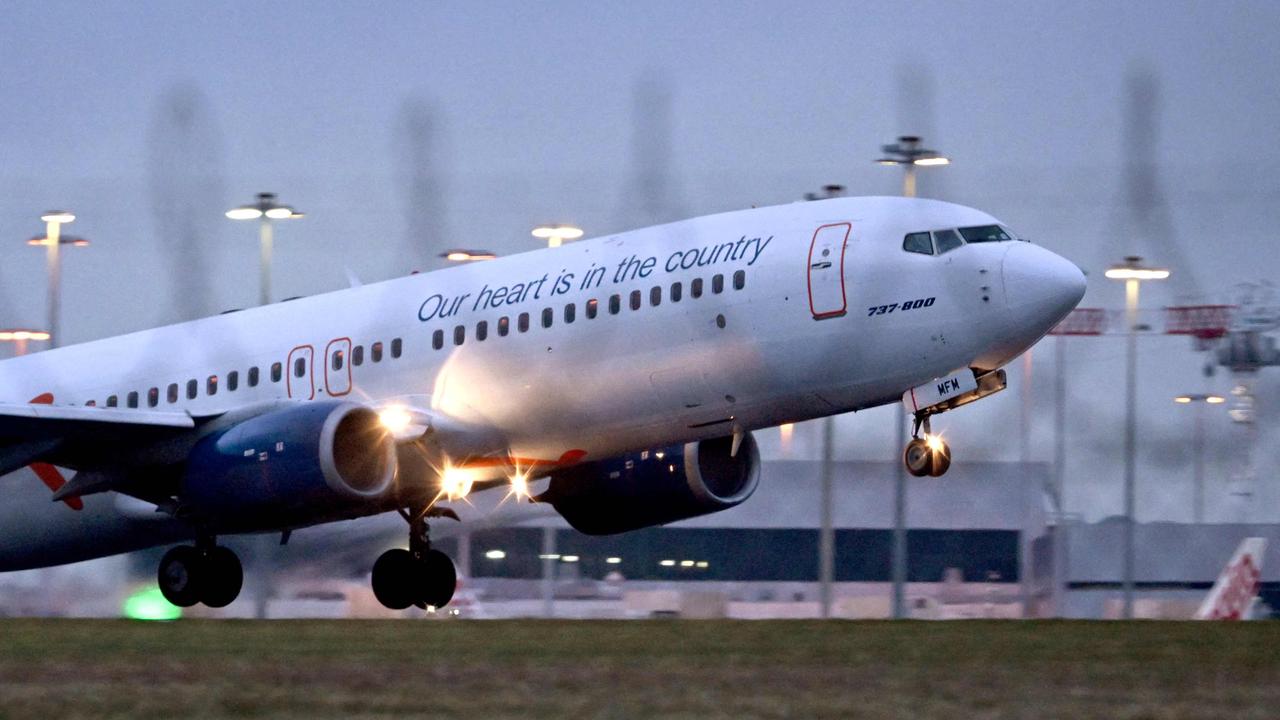All eyes are on budget carrier Rex, with speculation growing about its future in the Australian aviation market.
The airline suspended trading of its shares on the ASX on Monday, with a spokesperson saying a major announcement about the airline’s future would be made within the next 24 hours.
As reported by AustralianDeloitte restructuring partners Sal Algeri and Richard Hughes, who previously served on the board of Virgin Australia, have been appointed to the firm.
Rex is a major player in Australia's domestic market, being the country's third largest airline with service to 56 destinations.
While the airline serves a number of remote ports as part of its network, it also flies the always-competitive Sydney-Melbourne-Brisbane route.
In June, Rex slashed fares between Melbourne and Perth to less than $100 each way to compete with Qantas and Virgin.
Prime Minister Anthony Albanese told the ABC he and Transport Minister Catherine King had called for more information from the airline, adding that Rex was a “critical airline” in the current environment, particularly after the collapse of rival budget carrier Bonza.
“Rex Airlines is particularly important to communities in our region, and there are many communities where Rex Airlines is the only airline that serves these destinations,” said Mr Albanese.
“There are communities in New South Wales, Queensland, South Australia and across the country that rely on Rex … so it’s important,”
When contacted for comment, a Rex spokesperson said the company is currently in the process of suspending trading on the ASX “pending a material announcement”.
“At this time, we are not able to comment further until such an announcement is made,” the spokesperson said.
While the trading halt will not affect flights, it comes just three months after budget airline Bonza filed for bankruptcy in April, leaving 323 employees jobless.
The Transport Workers Union (TWU) says around 2,000 workers are in limbo after the trade shutdown.
TWU national secretary Michael Kine said they were working with Deloitte to get Virgin Australia back on the road and would do the same to “help Rex Airlines”.
“The aviation industry has suffered a huge loss of skills and experience, with thousands of employees leaving and good, secure jobs declining,” said Mr. Kaine.
“Workers, passengers and small regional carriers bear the brunt of the intense competition. We need a Safe Skies Commission to ensure that the needs of the community are met by a strong and stable aviation industry.”
Transport Minister Catherine King told Channel 7's Sunrise on Tuesday the government was monitoring the situation closely.
“Regional Australians rely on Rex,” she said.
“It’s a very important airline. In many cases, it’s the only airline that flies to small rural towns, and people rely on it a lot.”
“We take this as a very serious matter and are keeping a close eye on what is happening and are monitoring the situation at all times,”
“I want to assure everyone that Rex is an important airline… and we are closely monitoring the situation,”
Rex Airlines reported a net loss of $3.2 million in the first half of its 2023/24 fiscal year due to rising costs, particularly fuel, AAP reported in February.
However, the figure was an improvement from the $16.5 million loss reported in the same period a year earlier.
After Bonza collapsed, Qantas CEO Vanessa Hudson began to wonder whether Australia's domestic market had enough room for more than three airlines.
“History has proven it is not possible[to have more than three airlines in Australia],” Hudson said earlier this month at Perth Airport.[ในการมีสายการบินมากกว่าสามแห่งในออสเตรเลีย”ฮัดสันกล่าวเมื่อต้นเดือนนี้ที่สนามบินเพิร์ธ[inhavingmorethanthreeairlinesinAustralia”HudsonsaidearlierthismonthatPerthAirport
“If you think about why these three airlines are having problems, one reason is our population… and if you think about the United States… we have 26 million people.
“The economics of being a sustainable airline are incredibly challenging. It requires a lot of capital. The next biggest challenge is decarbonization, which is critical. We believe that no airline in the market is a winner or a loser in decarbonization. Everyone should do it because it’s the right thing to do.”
“I don’t think there’s enough volume to sustainably support significant growth in player numbers,”
There will be more to come.
